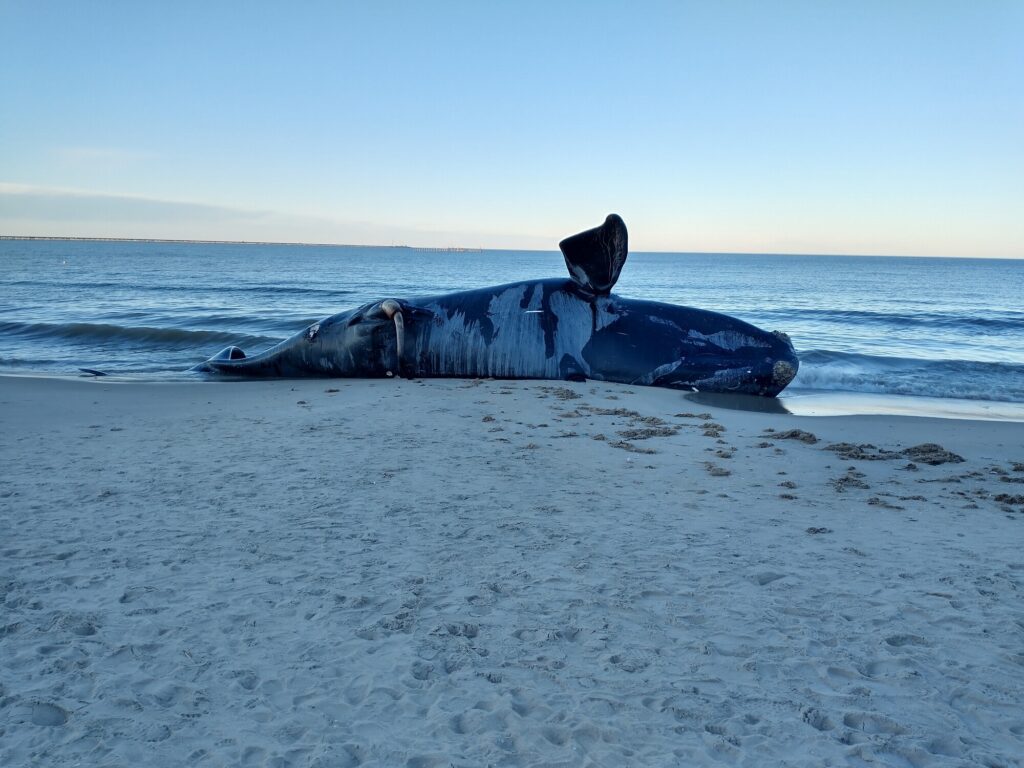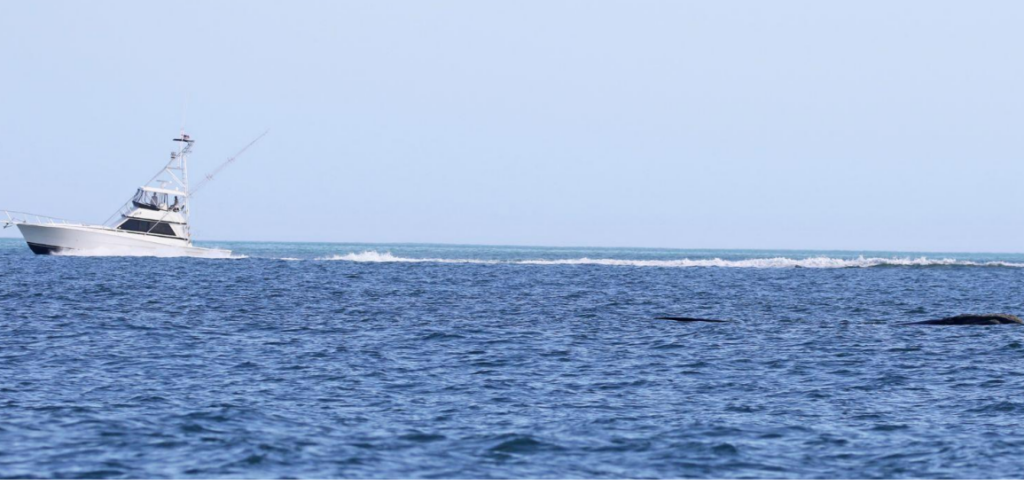A controversial plan to protect North Atlantic right whales by imposing offshore speed limits on smaller boats is now off the table.
There are strong reactions on both sides to National Oceanic and Atmospheric Administration (NOAA)’s decision to formally withdraw the expansion of the 2008 North Atlantic Right Whale Vessel Strike Reduction Rule.
NOAA had proposed tightening current speed restrictions in order to protect right whales from vessel strikes. Right now, there is a mandatory 10-knot speed restriction for vessels 65 feet and larger; the restriction would expand it to include boats 35 feet and larger. The existing Seasonal Speed Zones would also expand to cover larger areas.
The prognosis for the North Atlantic right whale population is increasingly dire. This extremely endangered species has less than 350 individuals remaining and an Unusual Mortality Event has been ongoing since 2017.
According to the Center for Biological Diversity, since 2020 at least 16 critically endangered North Atlantic right whales have been killed or injured by blows from boats and ships. Fewer than 70 reproductively active females remain.

But advocates for the boating industry argued that a 10-knot limit for vessels down to 35 feet would cause irreparable economic harm. It would bring a vast majority of boating and fishing trips along the Atlantic coast to a halt, they said, and would have a negative impact on marine retailers and recreational boating in general.
The National Marine Manufacturer’s Association (NMMA) spent time on Capitol Hill fighting the proposed restrictions. President and CEO Frank Hugelmeyer says, “NOAA’s proposed rule relied on incorrect assumptions and questionable data, and failed to distinguish between large, ocean-crossing vessels and small recreational boats, which could not be more different from each other.”
In all, NOAA’s National Marine Fisheries Service (NMFS) received some 90,000 public comments on the proposed rule, reflecting views on both sites of the issue. The agency announced this week, “Despite its best efforts, NMFS does not have sufficient time to finalize this regulation in this Administration due to the scope and volume of public comments.”
The wildlife groups that petitioned for the rule-making back in 2022 are outraged by NOAA’s decision to withdraw its proposal, accusing the government of “gross inaction and delays”.
Kristen Monsell, Oceans Legal Director at the Center for Biological Diversity, calls the announcement by NOAA “a tragic day for endangered right whales, who desperately need our help.” She says, “The agency’s inaction means that more right whales will suffer and die. The survival of these whales as a species depends on more protections from deadly ship strikes and deadly entanglements in fishing gear. If we don’t curb these manmade threats, these beautiful animals will vanish forever.”
Oceana’s message is that time is running out for the whales. “While we waited over two years for a decision on the vessel strike reduction rule, our East Coast has become a graveyard for North Atlantic right whales,” says Campaign Director Gib Brogan. “North Atlantic right whales don’t belong on our beaches, and they don’t deserve to die because of political incompetence and a blatant disregard for science-backed solutions.”
The recreational boating industry argues that there are better ways to protect the endangered right whale than disrupt boating and charter fishing on smaller vessels. Instead, opponents of the proposed rule say that infrared imagery detection, 3D sonar mapping, and marine radar algorithms would protect endangered marine life in a more targeted, effective way.
“Now the work begins by the federal government to create a durable solution that uses state-of-the-art technology to protect our endangered whale species without jeopardizing the livelihoods of hardworking American businesses and families that rely on access to the Atlantic Ocean,” says Hugelmeyer.
NMFS notes that withdrawing the proposed rule doesn’t stop NMFS from taking future action, “including but not limited to initiating a new rulemaking, to address ongoing lethal right whale vessel strikes.”




